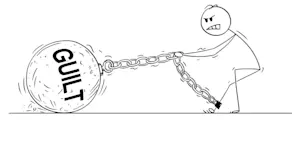What Makes This Word Tick
"Jostle" is a verb that brings to mind the bustling energy of a crowded street or a lively market, where people are constantly bumping into one another. It's an action word, full of movement and life, often suggesting a bit of friendly competition or an attempt to make room in a busy world.
If Jostle Were a Person…
Imagine Jostle as that overly enthusiastic family member at a crowded holiday gathering, always moving about with boundless energy, trying to get everyone to join in the excitement. They're not aggressive, just a touch over-eager, and full of zest.
How This Word Has Changed Over Time
Originally derived from the Middle English "justilen," which itself came from the Old French "joster" (meaning to joust), "jostle" has evolved from a more combative connotation to one that's more about gentle elbowing and friendly nudges.
Old Sayings and Proverbs That Use Jostle
While "jostle" might not headline many proverbs, you could find its spirit in sayings like "the squeaky wheel gets the grease," suggesting that those who push and shove are likely to attract attention, if not advantage.
Surprising Facts About Jostle
Did you know "jostle" once had a negative tint, associated with the noisy clamor of jousting knights? Today, it's more about everyday tussles, taking on a casual friendliness, often seen in crowded places rather than battlefields.
Out and About With This Word
You'll often find "jostle" amid conversations about crowded events—whether at a concert, sporting event, or the local farmer's market where everyone is vying for the best vegetables. It's the word for gentle shoving when lines blur.
Pop Culture Moments Where Jostle Was Used
In film and TV, "jostle" might describe the bustling scenes of iconic cityscapes. Think about the festive chaos in Times Square during New Year's Eve as portrayed in countless movies—a classic setting for some lighthearted jostling.
The Word in Literature
In literature, "jostle" often appears to depict bustling public places or moments of physical comedy. Authors use it to set the scene in busy environments, adding a dynamic sense of movement to their storytelling.
Moments in History with Jostle
Consider the New York Stock Exchange at the height of the Roaring Twenties. Though the word may not have been explicitly used, the trading floor captured the essence of "jostle," with brokers elbowing for deals in a cacophony of excitement.
This Word Around the World
In crowded bazaars of the Middle East, you'll find terms like "bousculer" in French or "толпиться" (tolpit'sya) in Russian, capturing similar feelings of bustling crowds and light shoulder-checking as people navigate tight spaces.
Where Does It Come From?
"Jostle" stems from the Old French "joster," tied to the practice of jousting. Over time, its meaning broadened to include any kind of light shoving or competing, losing its knightly vibes for more everyday scenarios.
How People Misuse This Word
People sometimes use "jostle" when they simply mean to "push." Unlike a straightforward push, "jostle" implies a lively, ongoing back-and-forth motion often found in crowds, rather than a singular motion.
Words It’s Often Confused With
Nudge: Implies a gentle touch or push often used to get attention, rather than the crowded elbowing of "jostle."
Bump: Typically suggests an accidental or incidental collision, lacking the intentional displacement of "jostle."
Shove: Conveys a stronger force and intends more aggression than the playful nature of a "jostle."
Additional Synonyms and Antonyms
Synonyms for "jostle" include hustle, elbow, and push. Antonyms include avoid, retreat, and withdraw, which suggest moving away rather than towards.
Want to Try It Out in a Sentence?
During the city marathon, runners had to jostle for space at the starting line, each eager to position themselves at the front of the pack.
















